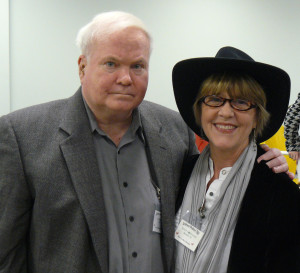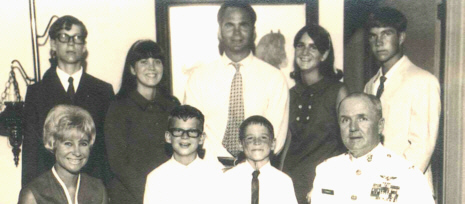 Best-selling author, Pat Conroy (The Prince of Tides, The Great Santini, Beach Music, South of Broad, and more) says, in The Death of Santini, that he has been clinically depressed most of his adult life. He explains why as he reflects back on his family’s “hazardous equilibrium,” saying that it was “a family in extreme breakdown … a family where great love and loyalty could grow even in such a disastrous garden of souls.”
Best-selling author, Pat Conroy (The Prince of Tides, The Great Santini, Beach Music, South of Broad, and more) says, in The Death of Santini, that he has been clinically depressed most of his adult life. He explains why as he reflects back on his family’s “hazardous equilibrium,” saying that it was “a family in extreme breakdown … a family where great love and loyalty could grow even in such a disastrous garden of souls.”

The Prince of Tides is probably my favorite book. Ever. It’s right up there with To Kill a Mockingbird, Michael Cunningham’s The Hours, and all of Mary Karr and Augusten Burroughs’ books. I’ve read all of Conroy’s books, and had the wonderful treat of meeting him in person a few years ago. He struck me as a man who had survived a shipwreck with incredible grace and humility. He describes that shipwreck through his fictional characters in his novels. The Great Santini focuses especially on his father, and The Death of Santini is his nonfiction account of “the rest of the story.” It’s not a book for people who want to read about happy families. As Conroy says:
I don’t believe in happy families. A family is too frail a vessel to contain the risks of all the warring impulses expressed when such a group meets on common ground…. The crimes of a father or the carelessness of a mother can defile the taste of oyster dressing and giblet gravy on the brightest Thanksgiving Day…. Since the melancholy of families has remained a constant theme of my books, I often encounter readers and friends who strive at great lengths to convince me that they emerged from homes of stalwart happiness and unbreakable harmony. Taking care, I always congratulate them on their great good fortune and tell them how lucky and how rare they are in this troublesome world. The happy family is one of the treasured romances of the American epic.

If you’re one of the lucky few who emerged from a happy and healthy family, you might not enjoy The Death of Santini. But those of us who survived—and are still surviving—abuse and other forms of dysfunction in our families of origin can find much insight and yes, even healing, from Conroy’s words.
There is one crazy that belongs to each of us: the brother who kills the spirit of any room he enters; the sister who’s a drug addict in her teens and marries a series of psychopaths… the neurotic mother who’s so demanding that the sound of her voice over the phone can cause instant nausea in her daughters…. As far as I can tell, every family produces its solitary misfit, its psychotic mirror image of all the ghosts summoned out of the small or large hells of childhood, the spiller of the apple cart, the jack of spades, the black-hearted knight, the shit stirrer, the sibling with the uncontrollable tongue, the father brutal by habit, the uncle who tried to feel up his nieces, the aunt too neurotic ever to leave home. Talk to me all you want about happy families, but let me loose at a wedding or a funeral and I’ll bring you back the family crazy. They’re that easy to find.
 What’s not so easy to find, though, is the incredible forgiveness and love that flows through Conroy’s broken family. I’m sure there are countless other readers who will come away from this book, as I did, thinking, “Wow. My family wasn’t as fucked up as I thought.” And more importantly, with a new hope for letting go of the anger and resentment that can ruin a person’s life. A hope of finally being able to forgive. As Conroy says near the end of the book:
What’s not so easy to find, though, is the incredible forgiveness and love that flows through Conroy’s broken family. I’m sure there are countless other readers who will come away from this book, as I did, thinking, “Wow. My family wasn’t as fucked up as I thought.” And more importantly, with a new hope for letting go of the anger and resentment that can ruin a person’s life. A hope of finally being able to forgive. As Conroy says near the end of the book:
Mom and Dad, though I won’t come this way again, I hope that your strong souls rest in peace. Though I will not write about your again, I would like you to take note that I still find both of you amazing, my portals into the light, and a myth and a narrative told in the rich mysteries of art.
The rich mysteries of art. And of forgiveness. As he wrote in The Prince of Tides:
In families, there are no crimes that cannot be forgiven.
wow! This must be an amazing read …. and we are all in that same garden, I believe. The thing is that we must find hope, forgiveness and joy (as well as humor) among the lilies and weeds, otherwise one can live and die without ever feeling the life, the month, that moment of bliss that is entirely possible. Bless you Susan for writing this!
Yes, Emma. And Conroy seems to have found that hope, forgiveness and even joy. Terrific read, but more than that.